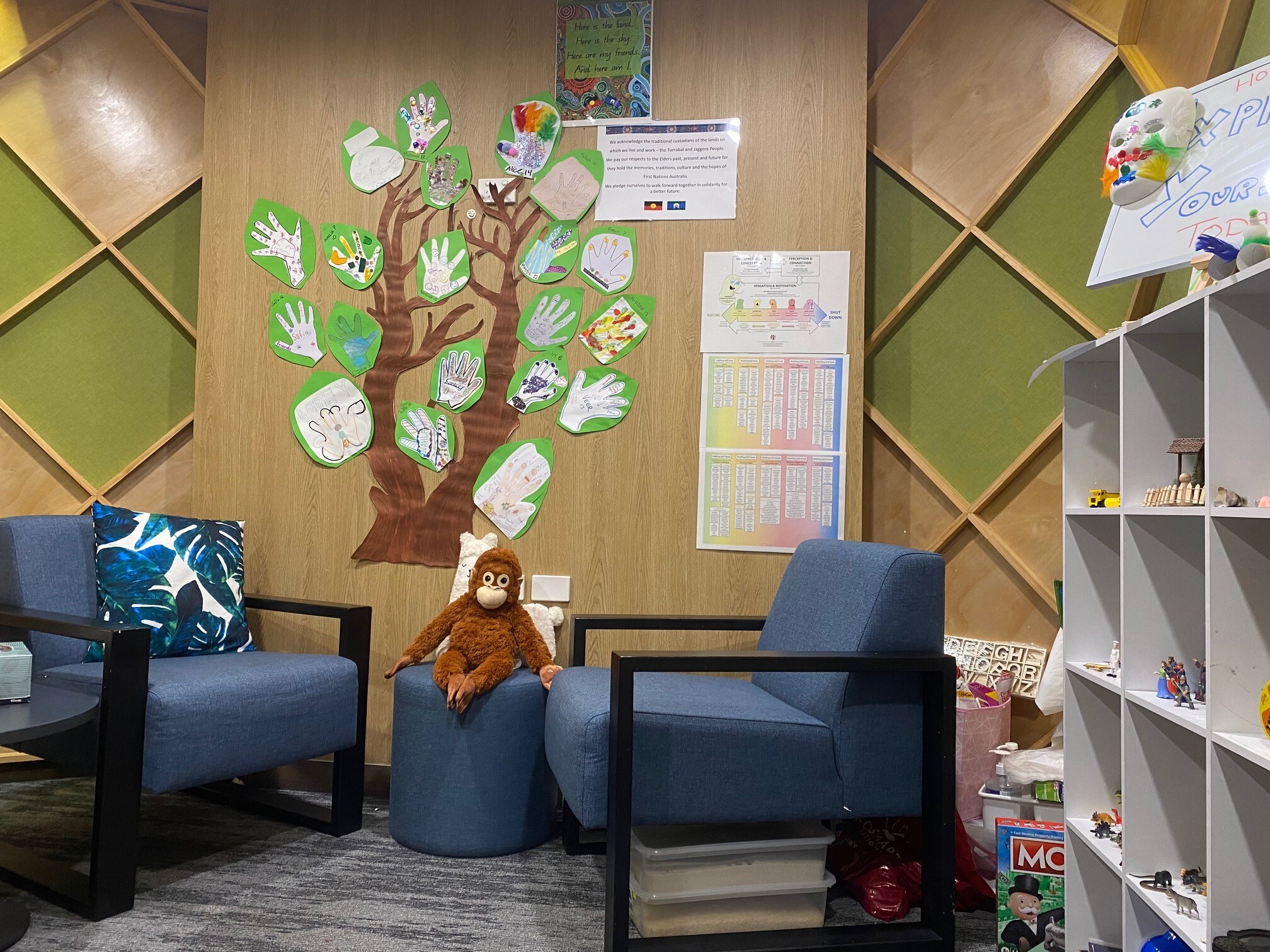This post was originally written for an interview with Wellways – you can read their article here
Years ago, as I began my career in mental health and well-being, I had never truly pondered on the significance of the developing mind, let alone on its paradoxical complexity.
 Yet, as we begin another New Year and as I sit here in the space that is known in the Wellways Brisbane office as the ‘Green Room’ looking at the flurry of colour and potential for expression, I contemplate this enigmatic human complexity that is never more evident than in those of us who take on the role of caregiver.
Yet, as we begin another New Year and as I sit here in the space that is known in the Wellways Brisbane office as the ‘Green Room’ looking at the flurry of colour and potential for expression, I contemplate this enigmatic human complexity that is never more evident than in those of us who take on the role of caregiver.
That, even in ensuing times of stress there is something within us that keeps us going. Perhaps some within the caring role may see this something that drives them as their responsibility or sense of duty. Yet, the more I sit alongside carers – both young and old – who find themselves struggling to cope, the more I have come to recognise that in all of us, despite overwhelming circumstance, there is a depth of knowing that holds onto an innate capacity for hope; an essential sense of Self that can discover meaning.
It is just that sometimes, when we are so lost in the roles we have ascertained in life, we need reminding of that Self who can experience a deep sense of connectedness – despite the chaos. We all need a stronger-wiser Other – a someone who can attune to, reflect, and appreciate that deep sense of Self, even if just for one moment.
Such hope and accessible sense of Self that holds the capacity for harmony and happiness is never truer than in Young Carers.
And, as a Young Carer Counsellor with Carer Gateway, it is my honest pleasure and a privilege to sit each day within this ‘Green Room’ alongside the younger more hidden carers amongst us as they share their stories that are often enfolded by both distress and delight.
Varied in ages from five to 25, the young carers share stories predominately of siblings with neurodevelopmental disorders such as ASD/ ADHD/ AuDHD; conduct and/or defiance disorders; schizophrenia and schizoaffective disorders; intellectual and/or motor disabilities; or severe congenital disorders. Occasionally there are young carers with parents who have severe physical or psychological health challenges, however for the most part the young carers we see are those that have taken on the responsibility of assisting in the care of their siblings. Such care most predominately showing up in the way that these young people have understood the necessity to surrender their needs for attention, attunement, reciprocity, and ultimately time from their parents in order for their families to function. Sometimes, these precious young ones are faced with scary situations as they witness escalated reactions and often unintended violence. Though, even in grappling with distress and aloneness, our young carers have a level of courage like none other. Courage that avails them the compassion to fathom that their sibling’s intend no harm.
Though this may be true, our young carers seem to implicitly know, and as we counsellors know, the compassionate surrender of some of their most essential Self-needs is of no fault of the parent. Indeed, as part of my work I have come to fathom that in most cases, the love of these parents for their young carers runs deeper than one could ever imagine. Of course, I here speak for the little ones still within the home environment by which the parent has brought them to the Carer Gateway service. Part of my role is also that of working with adolescents who, now that they are no longer within the family dynamic, are coming to terms with how their role as a young carer has impacted who they are – unfortunately there are times when these stories are not filled with that deep love of a parent.
Nevertheless, no matter the age or the nature of the caring role, I have come to understand that my work is first and foremost based on the paramount need for young carers to have a safe and meaningful interaction that opens space for their sense of Self to emerge. This is an emergent process wherein it is my heartfelt desire that each young carer leaves with a felt sense of being resonantly seen, heard, understood, accepted, valued, and delighted in.
This process, as aforementioned, is done from a space in our Brisbane office that is filled with colour and activity – things to create, play, and master: fidgets to fidget, squishy’s to squish, glitter to splash and sprinkle, slime to stir, messes that must be made! Within this space there are offerings of all kinds intended not only for joyful play, so too to facilitate gradations of connection and expression. When we compassionately connect one-to-one and allow children to play there is a natural flow of reflection and communication (both verbal and non-verbal) that allows a young carer to feel the emotions that have been kept hidden, to be free to ask the questions, or articulate the thoughts that may have been swirling around in their minds, and to make sense of their experiences whilst being valued simply for being themselves. For remarkably, when we feel that we matter – even if for just one hour a week or a fortnight, even if for just six sessions – we naturally find a sense of Self in hope emerging, in turn creating the space within for new ways of coping to develop.
And this is the wisdom that we each can acquire from our young ones, the significance of the developing mind and its paradoxical complexity: that life is not black and white, rather it is nuanced in colour and chroma, that even in the most seemingly disparate situations there can be faith, hope, and love.

